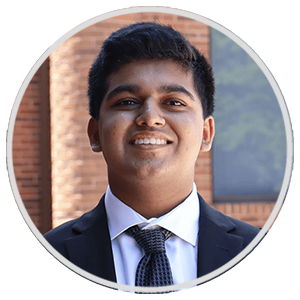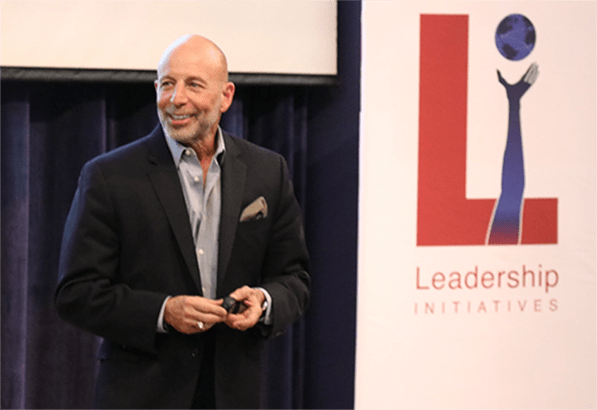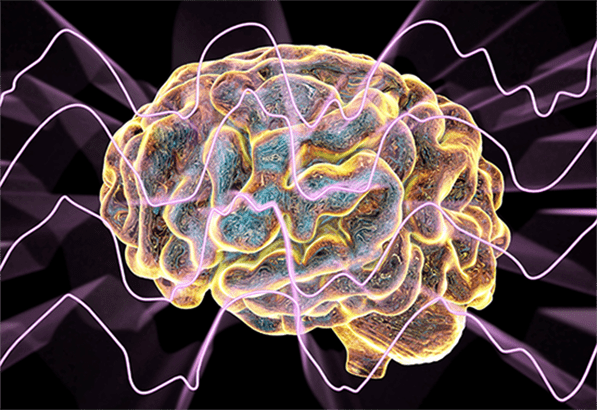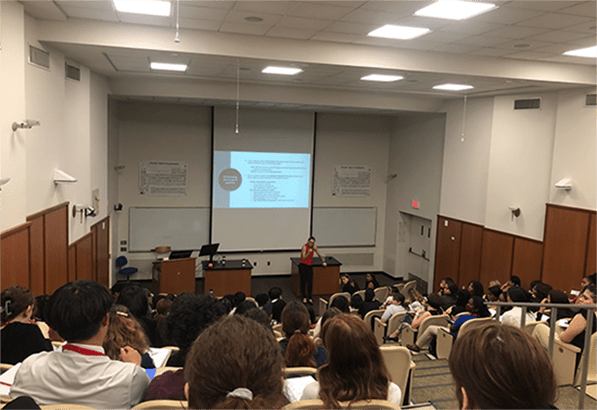

Collaborated with a group of the world’s premier scientists, professors, and professionals in the fields of neuroscience and neuroethics.
Synthesized new neuroscience knowledge into a research proposal for a cutting-edge neuroscience experiment.
Engaged in interactive activities with discussions about cognitive neuroscience and neuroethics in a cross-cultural setting through a biophysical lens.
Mia Karoki
Paulding County High School
Class of 2024


Learn more about Mia here.


Mia is excited to participate in the Advanced Medical Neuroscience Internship this summer at Georgetown University. She is eager to meet dedicated medical professionals from around the country that can continue to educate and prepare her for a future in the medical field.
As an upcoming junior, Mia is a dedicated member of the Magnet Program offered by the Academy of Science, Research, and Medicine. She studies in only Advanced Placement and Honors level courses. She is proud of her academic achievements and is currently a member of the National Honors Society, Beta Club, HOSA, Leadership Academy, Sources of Strength, and Student Council, where she serves as 2024 Class Treasurer. Mia also plays on the girl's golf team.
In the future, Mia looks forward to continuing her journey in the medical field as an aspiring Neurosurgeon. The women in her family suffer from a genetic neurological condition that has yet to be understood and is currently being studied by neurologists at Emory University. This neurological anomaly is what drives her passion in the field, in hopes that she may one day be able to help others that suffer the same condition. While she has her eyes set on attending Emory University in Atlanta, GA, she is looking forward to graduating high school and studying abroad in Italy before moving on to a graduate program.
Read more about Mia's achievements here.


The Frontier of Neuroscience
Center for Functional and Molecular Imaging
The Center for Functional and Molecular Imaging (CFMI) at Georgetown is one of the world’s leading institutions with expertise in structural, functional, and brain imaging.
While visiting the CFMI, I met Dr. John VanMeter, Director of the Neuroimaging Corps at Georgetown University, who described to me the rationale, protocols, capabilities, and limitations of Functional Magnetic Resonance Imaging and tract tracing.
I not only learned about the science behind fMRI, but also had the opportunity to see the machine that possess a magnetic power of 30,000 times the strength of Earth’s magnetic field.
Neuromodulation
Neuromodulation is a technology that electrically stimulates nerves or chemically targets neurological sites to treat nearly any disease or symptom.
I specifically learned about the HALO device, an application of neuromodulation that provides external electrical stimulation through a helmet of electrodes. It is primarily used to improve cognitive function and wellbeing, like learning, memory, and performance.
To further demonstrate the applications of neuromodulation, we learned aboutelectrical stimulation, perception of stimuli, and free will in order to control cockroaches from an iPhone.


Internship Highlights
Dr. James Giordano
Deep Brain Stimulation
The Creative Brain
Experts & Mentors

I had the chance to work and collaborate directly with Dr. James Giordano, Chief of Georgetown University’s Neuroethics Studies Program.
In addition to his involvement with a variety of educational institutions, Dr. Giordano is the author of over 350 publications in neuroscience and neuroethics.
During our first meeting, Dr. Giordano guided us through an exploration of our own brains, minds, and selves, probing for the problems, meanings, and questions within the world that surrounds us.
In subsequent meetings, Dr. Giordano frequently prompted both introspection and extrospection to encourage familiarity with the our own minds, as well as our environment, and how the two can interact to our benefit.

I had the unique opportunity to learn from Dr. Michael Okun, a neurologist, neuroscientist, and founder of the University of Florida’s Movement Disorders Program.
The university’s program aims to provide interdisciplinary and integrated care that facilitates communication between all members of their team to provide the best care possible.
Within his work, Dr. Okun utilizes Deep Brain Stimulation (DBS), which operates like a pacemaker within the brain and is often inserted via conscious surgery.
During this operation, electrodes are put in the brain to regulate electrical signals and help with conditions like Epilepsy, Parkinson’s Disease, Dystonia, Obsessive Compulsive Disorder, and Essential Tremor.

I had the opportunity to discuss stimulating creativity through brain science with Dr. Adam Green, the Director of the Lab for Relartional Cognition at Georgetown University.
Dr. Green maintains that creative insights are “the product of connections made between things other people didn’t put together,” and we explored the neurological foundations of this theory.
In one of his most prominent experiments, Dr. Green had participants draw the analogies to evaluate semantic distance and creativity as explained above, but also regarded the potential role of neuromodulation.
tDCS is transcranial direct current stimulation, which is a non-invasive "helmet" of sorts that allows for the modification of the neural pathways' firing in the brain. The external stimulator is placed on the scalp and then provides electrical stimulation to a broad region in order to control the neurons' firing.

Along with Dr. Giordano, I had the opportunity to work closely with Dr. Rachel Wurzman, a Fellow with the Center for Neuroscience & Society and Postdoctoral Research Fellow in Neurology with the Laboratory of Neural Stimulation at the University of Pennsylvania.
Dr. Wurzman promoted us to think critically about the questions that help drive science forwards and improve our understanding of the world around us biopsychosocially. She also lent her expertise of neuroplasticity, neurodiversity, and neuroethics to help our team develop our research proposal.
In addition to our work with Dr. Wurzman, we had the opportunity to meet with a variety of neuroscientists with a variety of unique specialities.
One such professional was Dr. Bill Casebear, a Lieutenant Colonel in the US Air Force, who holds a joint PhD in cognitive science and philosophy. Dr. Casebear used his expertise to discuss using neuroscience to drive policy, public health, and social responses for global issues and generate sustainable peace




